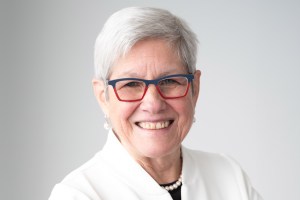Reading themselves into history
In today’s overstimulated society, it’s hard to imagine a time when reading—which we regard as solitary—was seen as a social activity. But for middle- and upper-class women of America’s first Gilded Age (from about 1865 to 1901), reading was social and central. In her book Well-Read Lives: How Books Inspired a Generation of American Women (University of North Carolina Press, 2010), Barbara Sicherman, B.I. ’74, argues that these women read themselves into history.
During the Gilded Age, women of a certain class were mostly excluded from an advanced education and work outside the home, so they turned to self-teaching. A domestic literary culture emerged, in which groups of women read to one another, recited and wrote poetry, put on parlor adaptations of dramatic works, played word games, and submitted original works to literary journals. They turned to one another for intellectual companionship and emotional support.
In a lecture at the Radcliffe Institute on September 16, “Reading Their Way into History: How Books Inspired the Progressive Generation of Women,” Sicherman gave rich examples of how the transformative possibilities of reading were heightened by its social nature during the Gilded Age.
Charlotte Perkins Gilman, best known for her wrenching short story “The Yellow Wall Paper,” formed an essay club with other women from Providence society in the late 1870s and early 1880s. This group later engaged in serious literary experiments; Gilman’s first poem, which arose from these collaborations, appeared in the New England Journal of Education.
Sicherman’s book is filled with other inspiring stories, all showing how reading spurred a lifelong desire for learning and often led women of the Gilded Age to question the status quo and pursue a path toward social justice.
Nancy F. Cott, the Carl and Lily Pforzheimer Foundation Director of the Arthur and Elizabeth Schlesinger Library on the History of Women in America and Jonathan Trumbull Professor of American History in the Faculty of Arts and Sciences, noted in her introduction of Sicherman, “This book was very much researched at the Schlesinger Library, so we take pride in it.”
Sicherman—the William R. Kennan, Jr., Professor of American Institutions and Values at Trinity College—has a longtime association with Radcliffe: She is a former coeditor of the groundbreaking biographical dictionary Notable American Women: The Modern Period (Harvard University Press, 1980) and was a Bunting fellow in 1973–1974.
Her lecture, sponsored by the Schlesinger Library, is part of the run-up to the Radcliffe Institute’s fall conference, “Why Books?” Those who would like to learn more about Charlotte Perkins Gilman should consider attending “Constructing Charlotte Perkins Gilman: A Dialogue between Judith A. Allen and Nancy F. Cott” on October 14. This event is an opening celebration for an exhibition of the Perkins collection, which runs until February 23, 2011.




